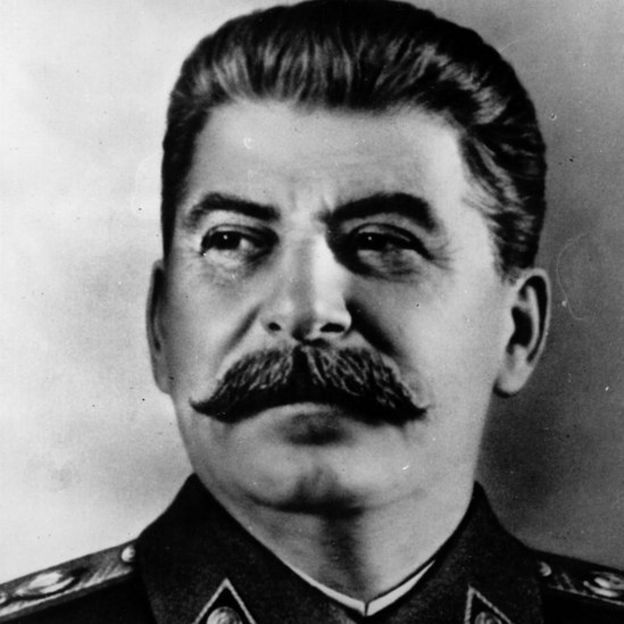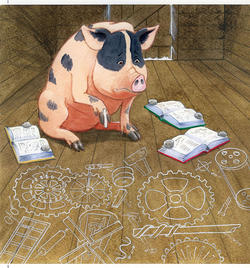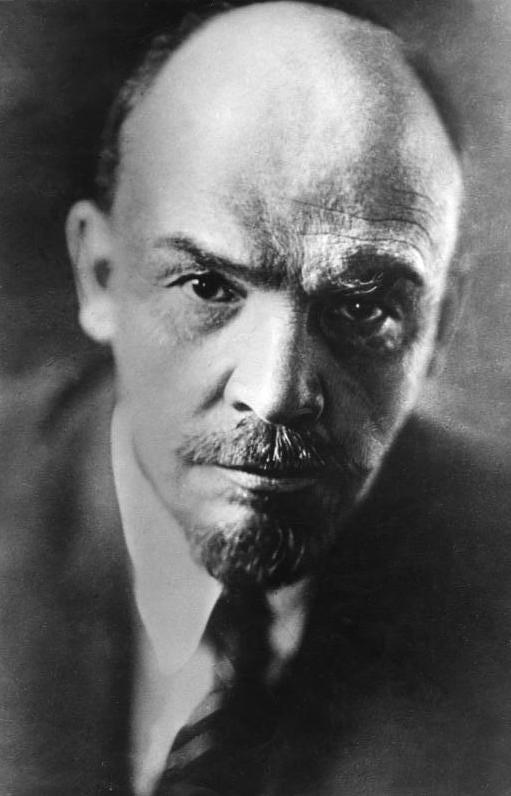Animal Farm Revision Notes - Year 11
Key Words: Use in your essays
- Dictator / Dictatorship
- Mass revolt / Revolution
- Corruption
- Self-sufficiency / Self-determination
- Deceit
- Religion
- Utopia / Utopian ideals / idealistic
- Despotic rule
- Proletariat (the 'workers')
- Propaganda
- Rhetoric (persuasive language) and Rhetorician (Squealer)
- Aristocracy / Bourgeoisie
- Hierarchy
- Animalism
- Analogy / Allegory
- Satire
- Irony
- Loyalty
- Unity
- Illusion / Disillusion / Delusion
- Idealistic
- Betrayal / lies and half-truths
- Totalitarian state
- Egalitarianism
- Fascism
- Delineated Class system
- Op-positional forces
- Collective independence
- Contextual
- Inferiority / Superiority
- Prosperity
- Intellectualism
- Ideological
- Politicise
- Socialism & Capitalism&/ Communism
- Marxism
- Economics
- Emancipation (freedom)
- Futility (pointlessness)
- Oppression and Supression
- Manipulation
- Machination
- Oration
- Democracy & Plutocracy & Dictatorship
- Hyperbole / Exaggeration / Superlatives
- Hypocritical / Hypocrisy
- Intermediary
- Scapegoating
- Exile / Expulsion
- Utilitarianism
- Anthropomorphic

Key Themes
- Power and Control
- Equality and inequality
- Politics
- Friendship
- Education
- Terror
- Information
- Propaganda
Key Structural Points
- Conventional third person narrative - omniscient narrator. This keeps Orwell's position at a distance from the narrative so his opinions are implied in other ways, such as through his use of satire and allegory.
- There are 10 chapters so it follows an episodic, linear structure. This allows us to witness the disintegration of the new regime and its fall into immorality as it happens.
- Irony is a dominant feature of the novel, for instance when Napoleon advocates the windmill as his idea when he has actually weed on the plans to show his disdain.
- Repetition of language and motifs e.g 'Beasts of England' the anthem which is used for conveying different messages throughout the novel. Also the maxim 'Four legs good, two legs bad' which also changes its meaning as Napoleon starts to adopt human characteristics.
- The Commandments are used structurally in the novel with many chapters ending with the destruction of distortion of one of the rules. Ultimately, the pace of this quickens and in chapter 10 we see the last few commandments ignored or broken within two pages.
- Look how the weather is also used at the beginning of chapters to suggest the farm conditions are becoming more harsh and unforgiving.
- The story is cyclical in terms of the animals at the end being in a similar dire situation to the beginning - reflecting Orwell's own views on political corruption and his own disaffected view of revolution - whilst he agreed with the principles of revolution, he did not see it working.
- Use of satire / humour and ridicule to draw our attention to the problems of unequal societies and to criticise politicians and leaders.
- Allegory was necessary as the book was published in 1943 at a time when Russia had been helping England in the Second World War. Anthropomorphism also enables the farm to serve as a microcosm for the Russian regime.
- Fairy story tropes are mocked with recurring images / motifs of negativity.
Key Characters
WORDS: Duplicitous, corrupt, evil, arrogant, cunning, manipulative, cruel, ambitious, totalitarian, controlling, dominant, aggressive, underhand, cowardly, selfish, self-absorbed.
EVENTS: Reputation for getting his own way, uses Boxer for his work ethic and uses the dogs as means of controlling the other animals (takes them as puppies which shows his strike for power is premeditated), controls the food source (e.g milk, apples, eggs), starts to 'deal' with the human enemy for his own gains, shows a lack of empathy for Boxer, expels Snowball so he can have a totalitarian state, is not directly involved in any fighting ('nowhere to be seen' during the iconic Battle of the Cowshed), perverts the meaning of the Commandments more as the book goes on.

- Representative of Stalin: puts self above state, punished enemies, killed and tortured political opponents, rose to power through ruthlessly dealing with opponents and having Trotsky exiled.
- Orwell called Napoleon: 'Barbaric and Undemocratic' and said, "Nothing contributed so much to the original idea of Socialism as to the belief that Russia was a Socialist country."
- Used the allegory of a farm yard to deliberately mock political leaders. Subverted the 'fairy story' motifs through animal characters committing unspeakable acts such as holding show trials and sacrificing Boxer.
- Napoleon can be compared with Old Major as two very different leaders: Old Major wanted equality and to preserve the animals' dignity and provide them with education. Napoleon wants to convince the animals that these are also his ideals when, in actual fact, his regime is suppressing their freedom and he rules them through cunning, deception and fear.
- Is indicative of the 'power corrupts' maxim as he changes the meaning of key words on Animal Farm such as 'Comrade' and 'equality' for his own ends, eventuating in his transformation into the humans (climax of chapter 10 where you cannot tell the difference between the two)
- Uses a mixture of fear and intimidation (threat of dogs, getting rid of Snowball), rhetoric and persuasion (Squealer), self-promotion and aggrandising (setting himself up as 'Leader'), cunning and deception (lying about the windmill and taking credit for Snowball's ideas) to establish and maintain control.
 SNOWBALL
SNOWBALL
WORDS: Inspiring, Courageous, Idealistic, Naive, Democratic(?), Preeminent, a leader, intelligent, vivacious, charismatic, compelling, appealing, aspirational, ambitious, shrewd, innovative. inventive, sociable, superficial?, strategist, mythical figure, hypocritical, eloquent, idealist.
EVENTS: He is the source of the windmill idea and the maxim 'Four legs good, two legs bad' which reveals his intelligence and innovative personality. He tries to put the rules into action by having them written on the wall. He is undermined by Napoleon showing force is perhaps more adequate means of control than ideas and ideology. He DOES energetically promote revolution and tries to educate the animals BUT he also condones the stealing of the best food for the pigs showing he undermines his own calls for equality and believes the pigs to be superior. He is brave in battle (unlike Napoleon) and is a planner. When he is exiled, he is made a scapegoat for all the evils of the farm and is connected to Mr Jones as a mythical figure representing what was wrong in the past / the threat to the so-called 'stability' of the new regime.

- Representative of Lenin (who was in power in Russia from the Revolution in 1917 until 1924 when he died). He was an ideologist, a political thinker, a stirrer of rebellion and a firm Marxist. He believed that the Capitalist status quo - an egalitarian state with the power in the hands of the wealthy bourgeoisie at the expense of the poverty stricken proletariat - would be overthrown by a proletariat revolution and Socialism would rise. Like Lenin, Snowball firmly believes in the power of the 'people' and in education as a tool to increase the power of the masses.

- Also representative of Trotsky - Stalin's political ally and then opponent who was exiled after leading an uprising against Stalin in the 1920s. Snowball is similarly exiled in Animal Farm and this exile marks a turning book in the novel where the farm begins to decline and lose its intellectual focus.
- Orwell has spoken of Snowball, saying that his name is supposed to be ironic because he paints himself as 'whiter than white' in terms of his morals BUT he is in fact hypocritical and just as self-serving and personally ambitious as Napoleon in some ways.
- He is very eloquent (good speaker) and his speeches have the ability to stir feelings of revolt in the animals. However, he fails to notice Napoleon's gathering of force and is ultimately unable to secure power, thus perhaps proving that eloquence can only get you so far.
- He is an idealist and can be criticised for failing to recognise the failings of the animals, for instance he advocates education for all but some of the animals (such as Boxer and the sheep) cannot get far with their education. Napoleon is arguably more shrewd and intuitive as he recognises that animals also need to be ruled by a leader.
COMING NEXT WEEK:
1. Old Major and Boxer character studies.
2. Writing a powerful plan and thesis statement.
3. Quoting successfully.
If Comrade Fowler says it, it must be right... :)

No comments:
Post a Comment